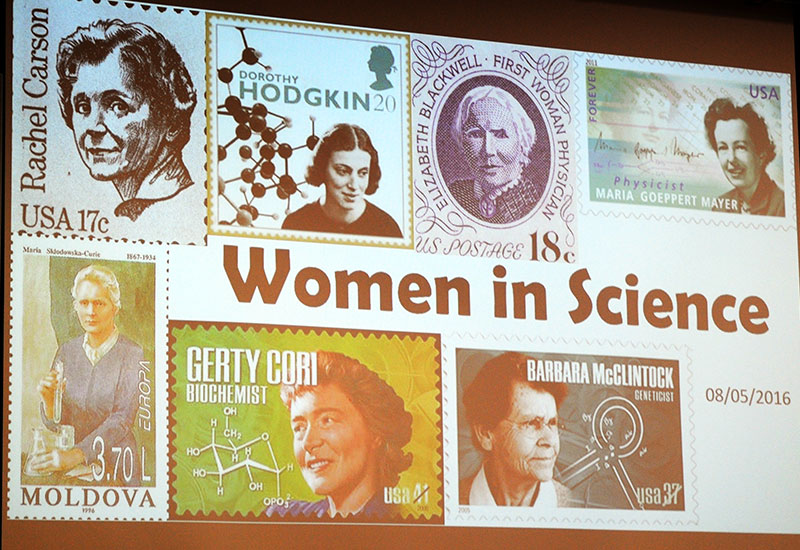
The Department of Agronomy and Horticulture Graduate Student Association hosted the Women in Science Workshop–Challenges in Academia and Industry, on Aug. 5 in Plant Sciences Hall. This one-day workshop brought together students, faculty, staff and industry representatives to bring awareness of the opportunities available to women in science to further their studies and achieve more representation in academia and industry.
Roch Gaussoin, department head, opened the day with a warm welcome and spoke of the importance of women in science and in the department.
Ellen Paparozzi, professor in agronomy and horticulture, shared an overview of where women in science are working. She highlighted recent research that shows women are not applying to science jobs, especially in academia.
“While women faculty (STEM disciplines) make up only 11.6 percent of IANR faculty, recent research shows that female scientists were hired two to one after interviewing for a faculty position. Bottom line – the time is right for adding female faculty to the academy – they just need to apply!” said Paparozzi.
Rebecca Roston, assistant professor in biochemistry, stated there are plenty of women doing great science, but the issue is, women aren’t applying for positions working in science.
Sarah Potts, Ph.D. in crop sciences and a corn breeder for Dow AgroSciences, shared her journey into plant breeding and balancing graduate school and a professional career, with having children. Planning was essential to achieve high productivity at work, Potts noted. She began her days early at work—starting her gel electrophoresis experiments so they could run while she returned home to get her children ready for daycare.
“The workshop was a fascinating look into the multitude of issues that women face in their scientific careers, covering topics such as navigating job negotiations to communication styles to juggling a career with motherhood,” said Potts. “As a woman in commercial plant breeding, I thought the questions directed to me from the participating students were very relevant and thought provoking.”
According to Leonie Moyle, a professor of biology at Indiana University–Bloomington, self-advocacy is important in establishing a career. She talked about her unique perspective on being a spousal hire and said she didn’t collaborate with her spouse until after reaching tenure. She wanted to show what she had done for her own career.
Sharmin Sikich, assistant professor at Doane University, concluded the morning session with her insights into the career changes she has had teaching at primarily undergraduate institutions. She said she focuses her effort on helping students learn and volunteering with minority and woman programs.
Speakers led discussions in the afternoon breakout sessions allowed participants deeper conversations with the speakers on focused topics such as communication, stereotypes, advocacy, education and outreach. Discussions also included strategies to reduce negative impact while still standing up for your goals.
Making communication more powerful in the workplace was a topic addressed during Roston’s session.
“Studies have shown that women who communicate in direct, uncompromising fashions (as many of their male colleagues) are frequently seen as aggressive. Whereas men who do the same are seen as assertive, powerful figures,” said Roston.
The Women in Science Workshop was funded by Dow AgroSciences Aid to Education program, the University of Nebraska–Lincoln Agricultural Research Division and UNL Department of Agronomy and Horticulture.
More details at: http://agronomy.unl.edu/news/women-science-workshop-inspires